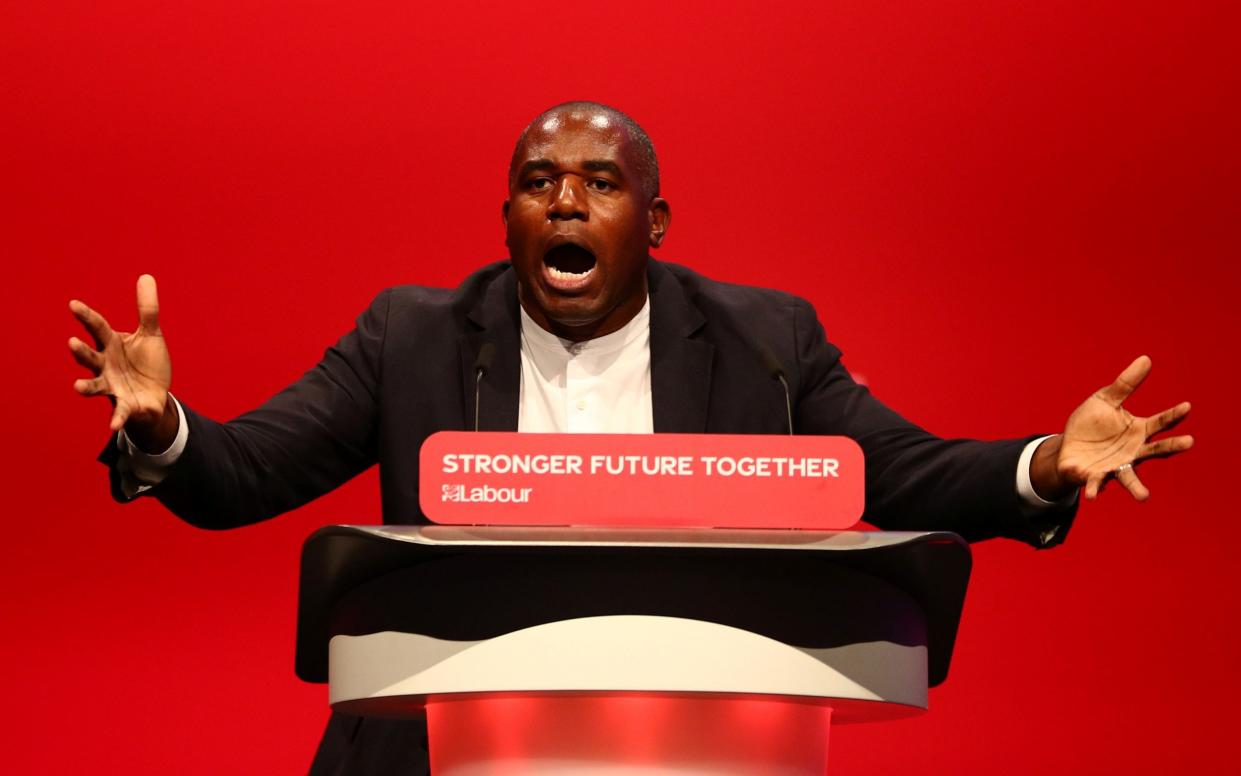Britain’s foreign policy must make it richer, says Labour

Britain’s foreign policy must make it richer, David Lammy will argue this week in a 14,000-word pamphlet setting out the party’s stall on global affairs.
The shadow foreign secretary has written an essay arguing that “promoting prosperity” must be one of the Foreign Office’s key objectives after Brexit.
The pamphlet will be published by the Fabian Society, which last year also printed an essay of the same length by Sir Keir Starmer.
Mr Lammy will say Britain has become disconnected from the world and must integrate more with other countries to promote prosperity and security.

In a section seen by The Telegraph, he will say: “You might wonder what economic growth and economic justice in Britain have to do with foreign policy.
“Isn’t this a matter for the Treasury, the Department for Education and the new Department for Business and Trade? Of course, it is central to each of these ministries, but we overlook the foreign-policy dimension to Britain’s prosperity at our peril. The past few years have shown that we must make our economy more resilient to geopolitical tensions and external shocks.
“Refocusing Britain’s foreign policy to focus on prosperity, economic diplomacy, sustainable growth and accelerating our transition into a clean-energy superpower will not be easy.
“It will require the retooling of the [Foreign, Commonwealth & Development Office], in a way that is shaped by the reality of new technologies, the rise of economic nationalism, and the paralysis of the post-war multilateral system.”
UK exports have fallen
Separately, trade data released by the Office for National Statistics has predicted that UK exports have fallen by £51 billion this year – a drop of 6.6 per cent.
The Office for Budget Responsibility’s data suggests the collapse in export figures will result in Britain’s biggest trade deficit since the 1940s, with the gap between imports and exports reaching more than 6 per cent of GDP.
Nick Thomas-Symonds, shadow international trade secretary, said the figures were a “devastating verdict on this Government’s failed trade policy”.
“This is a major drag on UK growth, which is holding our country back and hitting people in the pocket,” he said.
Key barriers to trade
The Government says it has identified 100 key barriers to trade and has set a target for UK businesses to reach £1 trillion of exports by 2030.
Last year, the total value of UK exports was £781.2 billion.
Kemi Badenoch, Trade Secretary, told MPs on Thursday that the UK would “imminently” be joining the Comprehensive and Progressive Agreement for Trans-Pacific Partnership, a bloc of 11 countries, including Australia, Canada and New Zealand.
Ms Badenoch said Britain had reached a “great stage” in negotiations and would have “good news” in due course.
But talks over a multi-billion-pound trade deal between the UK and India have taken longer than expected, with a “deal for Diwali” missed by negotiators in October.
Disagreements over visas and mobility for Indian professionals remain key sticking points.

 Yahoo News
Yahoo News 
